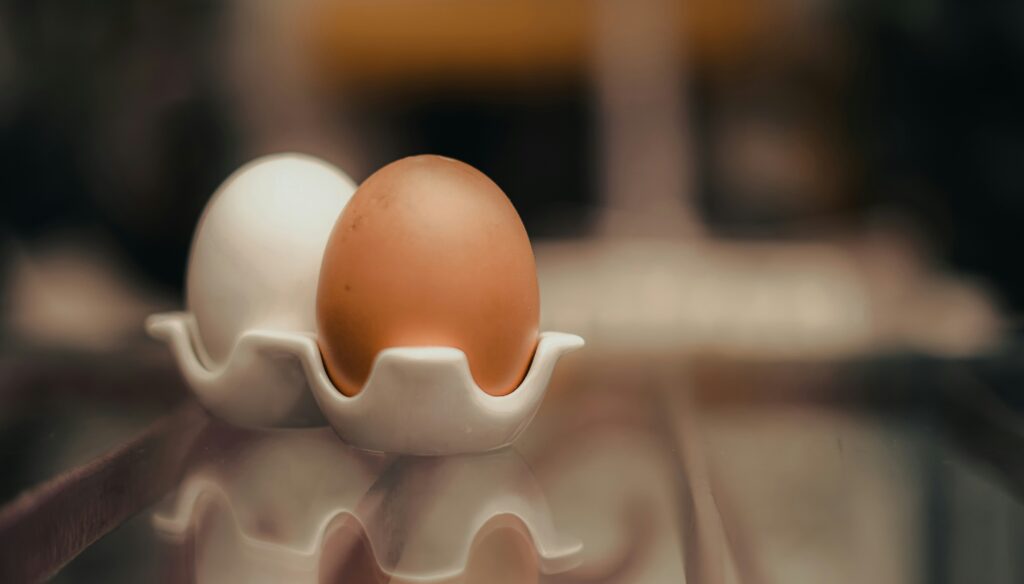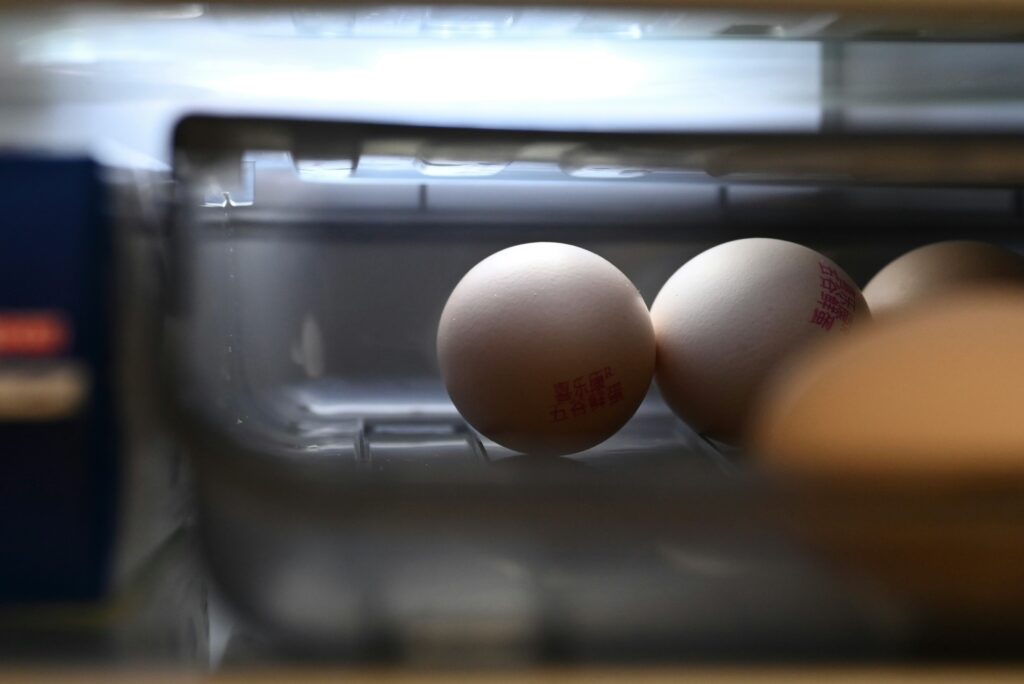Introduction
Eggs are a kitchen staple in households worldwide. But how long can eggs sit out at room temperature before they become unsafe to eat? Whether you’re working with fresh farm eggs or store-bought cartons, understanding proper egg storage isn’t just about taste—it’s about health. Let’s explore the science, expert tips, and food safety guidelines behind egg storage so you can confidently enjoy every breakfast scramble, bake, and brunch.

Photo by Ankit Gupta on Unsplash
Why Egg Storage Matters
Proper egg storage is critical for avoiding foodborne illnesses such as salmonella. When eggs are left out at unsafe temperatures, bacteria can multiply quickly. Even eggs that appear fine on the outside may harbor harmful pathogens if stored improperly.
- Eggshells are porous, which means bacteria like Salmonella enteritidis can penetrate them.
- Improper handling can lead to cross-contamination in the kitchen.
- Illnesses linked to eggs can cause severe health issues, particularly for children, the elderly, and immunocompromised individuals.
In short: storing eggs safely is a public health concern—and one you can control with the right knowledge.
USDA vs European Guidelines
There’s a stark difference in how egg storage is treated in the U.S. vs. many European countries.
| Region | Storage Method | Reason |
| USA | Refrigerated (below 40°F) | Eggs are washed, removing protective bloom |
| Europe | Room temperature | Eggs are unwashed, retaining natural cuticle |
Why the difference? In the U.S., commercial eggs are cleaned to remove contaminants, which strips away the protective coating. Without it, refrigeration is mandatory to inhibit bacteria growth.
In contrast, the EU relies on the cuticle (natural bloom) to protect eggs from contamination, allowing safe room-temperature storage.
Room Temperature and Bacteria Growth
Let’s talk science. The “danger zone” for bacterial growth is between 40°F and 140°F (4°C to 60°C). When eggs are left in this range for too long, bacteria like salmonella can thrive.
Key facts:
- Bacteria can double every 20 minutes at room temperature.
- Once eggs reach 70°F+ for more than 2 hours, spoilage accelerates.
- Even uncracked eggs can become hazardous after prolonged exposure.
How Long Can Raw Eggs Sit Out?
According to the U.S. Department of Agriculture (USDA), raw eggs should not sit out for more than 2 hours at room temperature.
- If the ambient temperature is above 90°F, this window shortens to just 1 hour.
- Eggs left out too long should be discarded, not rinsed and refrigerated.
This applies to both store-bought and washed farm eggs. Unwashed farm eggs are a different story (covered later in the article).
How Long Can Boiled Eggs Sit Out?
Hard-boiled eggs are even more vulnerable than raw ones due to the removal of the protective shell coating during boiling.
Time limit:
- Boiled eggs should not sit out for more than 2 hours.
- Peeled boiled eggs must be consumed within 2 hours, or refrigerated immediately.
Tip: Store unpeeled boiled eggs in a sealed container in the fridge for up to 7 days for safe consumption.

Photo by Ishe Mabugu on Unsplash
Signs Your Eggs Have Gone Bad
Not sure if your eggs are still good? Here are some red flags to watch for:
- Foul or sulfur-like odor when cracked
- Slimy or chalky shell
- Discoloration (e.g., pink, green, or iridescent whites/yolks)
- Egg floats in water (indicates gas buildup and spoilage)
Pro tip: The water test is a safe way to check freshness. Place the egg in a bowl of water:
- Sinks and lays flat: Fresh
- Sinks and stands upright: About to expire
- Floats: Spoiled
Can You Still Cook Eggs That Were Left Out?
It’s risky. If eggs have sat out longer than 2 hours, even if they look fine, don’t cook or consume them.
Why?
Bacteria may not alter smell or appearance, but they can still cause foodborne illness.
Safe cooking cannot always eliminate all risks once bacteria has proliferated. When in doubt, throw it out.
How to Store Eggs Properly
Best practices for keeping eggs fresh:
- Keep eggs in their original carton (prevents odor absorption and moisture loss).
- Place them in the coldest part of the fridge, not the door.
- Store at or below 40°F (4°C) consistently.
- Avoid washing eggs before storing unless immediately used, especially farm eggs.
Use-by dates are helpful, but storage habits are more influential in determining freshness.
Tips for Extending Egg Shelf Life
Here are seven expert-backed ways to keep your eggs fresh longer:
- Keep eggs dry and unwashed (if fresh from a farm).
- Rotate older eggs forward in your fridge.
- Use egg trays with lids to reduce airflow and contamination.
- Avoid frequent temperature changes—don’t leave eggs out repeatedly.
- Use vinegar water (light wash) for longer storage without refrigeration (for unwashed eggs).
- Freeze eggs (beat whites and yolks, store in ice cube trays).
- Label cartons with purchase or collection dates.
How Long Can Farm Fresh Eggs Sit Out?
Farm-fresh eggs, particularly unwashed ones, can safely sit out for up to 2–3 weeks at room temperature if the climate is cool and dry.
Important:
- Once washed, they must be refrigerated immediately.
- Avoid exposure to moisture, which weakens the cuticle and invites bacteria.
This is why many homesteaders or farmers store eggs on the counter—because the natural bloom acts as a barrier.

Photo by Horace Li on Unsplash
The Role of the Egg Cuticle
The cuticle, or bloom, is a thin protein layer that forms on eggs when laid. It:
- Seals the pores in the eggshell
- Prevents bacteria and contaminants from entering
- Helps retain moisture
In the U.S., commercial egg washing removes this layer. That’s why refrigeration is non-negotiable for store-bought eggs.
Are There Safe Alternatives to Refrigeration?
If refrigeration isn’t available, consider:
- Cool storage cabinets or pantries (below 60°F)
- Earthenware coolers (for off-grid living)
- Dehydrating or powdering eggs (long-term)
- Pickling eggs in vinegar brine
These methods are used globally, especially where power supply is inconsistent.
Common Myths About Egg Storage
Let’s bust a few egg myths:
“Eggs are fine if they don’t smell.”
Bacteria may not always affect odor.
“Brown eggs last longer than white.”
Shell color doesn’t affect storage life.
“Refrigerated eggs can be left out again.”
Repeated temperature changes lead to condensation, increasing bacteria risk.
Egg Storage Chart for Quick Reference
| Egg Type | Room Temp | Fridge (≤40°F) | Notes |
| Raw (Store-bought) | 2 hrs | 3–5 weeks | Never leave out |
| Boiled (Unpeeled) | 2 hrs | 1 week | Refrigerate ASAP |
| Boiled (Peeled) | 2 hrs | 2–3 days | Store in moist paper towel |
| Farm Fresh (Unwashed) | 2–3 weeks | 3+ months | Avoid washing until use |
What the CDC and FDA Recommend
According to the Centers for Disease Control and Prevention (CDC) and U.S. Food and Drug Administration (FDA):
- Always store eggs in the refrigerator at 40°F or below
- Cook eggs until whites and yolks are firm
- Discard eggs if left out for more than 2 hours
You can find more detailed safety guidelines on the FDA’s Egg Safety page.
Final Recommendations
- Refrigerate all store-bought eggs immediately.
- Follow the 2-hour rule strictly.
- When handling farm eggs, know if they’re washed or not.
- Use the water float test for freshness.
With the right storage techniques, you can keep your eggs safe and your meals delicious.
FAQs
1. Can I leave eggs out overnight if my kitchen is cool?
No. Even in cool kitchens, bacteria can still multiply if eggs are left out over 2 hours.
2. How long do eggs last in the fridge?
Raw eggs in shells last 3–5 weeks, while hard-boiled eggs last up to 7 days.
3. Is it safe to eat an egg that stands upright in water?
Yes, but it’s nearing expiration. Use it soon and cook thoroughly.
4. Do farm eggs need to be refrigerated?
Only if they’ve been washed. Unwashed eggs with the bloom intact can sit out for weeks.
5. Can you freeze raw eggs?
Yes. Crack and beat them first, then store in an airtight container or ice cube tray.
6. Why do American eggs need refrigeration?
Because they’re washed commercially, which removes the protective cuticle and makes them vulnerable to bacteria.

Photo by Myriam Zilles on Unsplash
Conclusion
Understanding how long eggs can sit out at room temperature is a small but crucial part of kitchen safety. By applying these expert-backed rules, you’ll avoid spoilage, keep your family safe, and get the best taste and texture from every egg you use.
